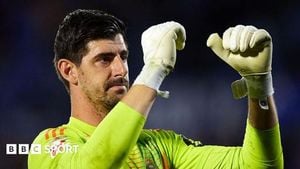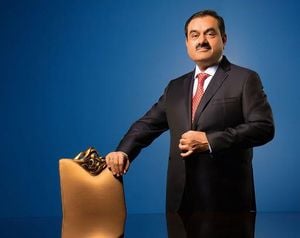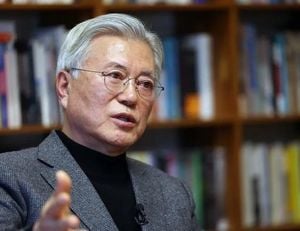LITTLE ROCK (KATV) — UFC fighter and Arkansas native Bryce Mitchell has ignited controversy with shocking remarks made during the inaugural episode of his podcast, ArkanSanity, co-hosted with Roli Delgado. The episode quickly veered off course as Mitchell offered his take on historical figures, including Elon Musk and Adolf Hitler, resulting in widespread outrage and condemnation.
Mitchell's controversial comments began when the discussion shifted to Musk’s gestures on social media, which some interpreted as reminiscent of Nazi salutes. Mitchell stated, “Here’s what I say about him heil hitlering, or heil hitlering the Nazis. I really don’t think he was, because I honestly think Hitler was a good guy based upon my own research, not my public education indoctrination.” These statements drew immediate backlash.
Continuing along this vein, Mitchell made highly unorthodox claims, saying, “I really do think before Hitler got on meth, he was a guy to go fishing with.” He went on to assert, “He fought for his country, he wanted to purify it by kicking the greedy Jews out.” These remarks, both anti-Semitic and alarmingly misleading, were met with disgust from many listeners and prominent figures alike.
UFC President Dana White did not hold back when addressing Mitchell's statements. He expressed his deep disappointment, declaring, “We’re disgusted by it.” White criticized the ignorance rooted in such comments, stating, “That’s the world we live in now. Dumb people, people who are really stupid and really ignorant can have a voice.”
White characterized Mitchell’s remarks as being among the worst he had heard over his lengthy career. “I’ve heard a lot of dumb and ignorant shit said over the years, but this is probably the worst,” White remarked during the UFC event, emphasizing the severity of Mitchell's comments. He reminded listeners of the historical weight surrounding discussions about Hitler, who was responsible for the death of six million Jews, and noted the total lack of merit behind Mitchell's claims.
Despite openly criticizing Mitchell’s words, White clarified the UFC's position on potential repercussions. “It’s free speech,” he maintained, acknowledging the protective nature of freedom of expression, even when it involves such distasteful views. White indicated there would be no disciplinary actions taken against Mitchell for his outspoken remarks. “That’s the beautiful thing about this business. For all of you who hate Bryce Mitchell, you get to see him hopefully get his ass whooped on global television,” he stated, emphasizing the competitive nature of the sport.
The fallout from Mitchell's podcast remarks has sparked conversations about the broader responsibilities of public figures, especially athletes who often serve as role models. While some argue for unconditional free speech, others contend there must be accountability for such damaging rhetoric.
Mitchell currently ranks 13th among UFC featherweights with a professional record of 17 wins and 3 losses. His comments may impact his reputation and public perception within both the sporting community and general public.
While the UFC thrives on promoting fighter personalities, the backlash from this podcast episode serves as a stark reminder of the fine line between personal expression and the promotion of harmful ideologies. Situations like these prompt the question: How should sports organizations manage the responsibilities of their athletes, especially when their public statements can resonate widely, sometimes negatively?
Though it remains to be seen how this controversy will shape Mitchell’s future within the UFC and beyond, one thing is for certain—his statements have ignited a conversation surrounding the lines of decency, respect, and responsibility for those who live life under the public eye.



